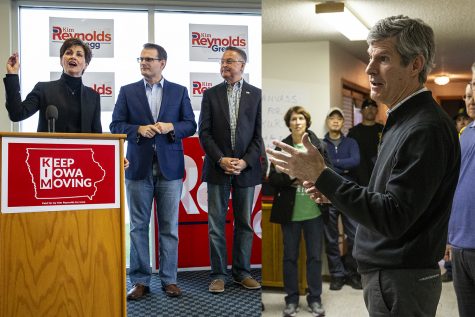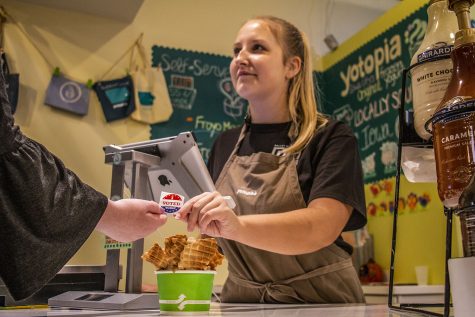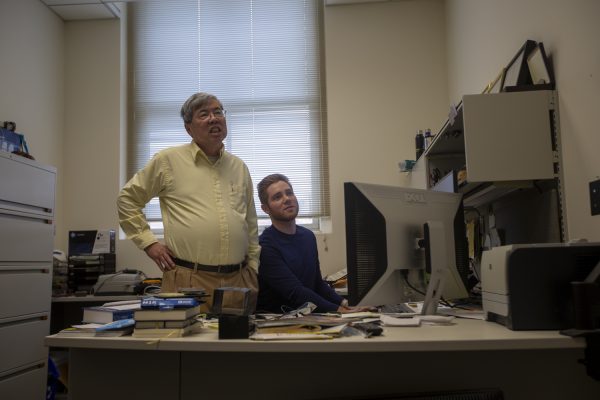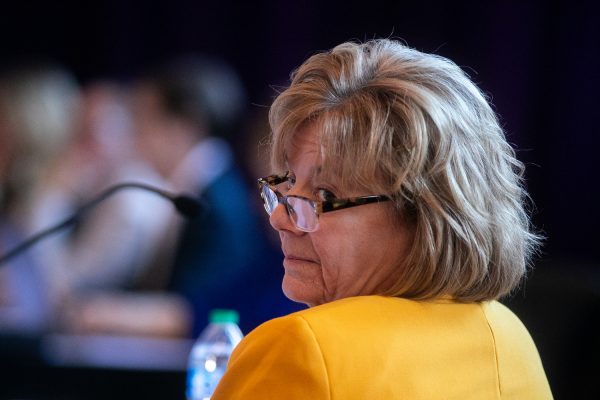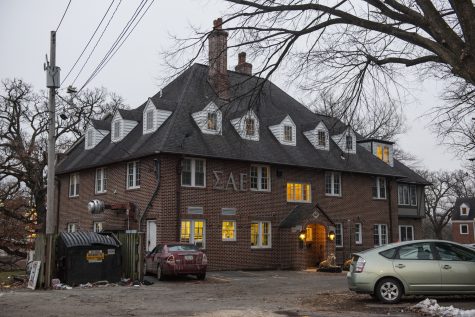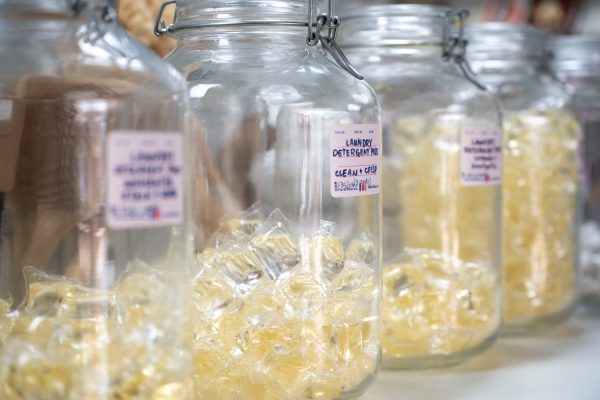State of Iowa could face physician assistant shortage
UI’s Tippie College of Business conducted a study that determined in the next 15 years, the state could face a physician-assistant shortage.
Students roam the halls of the Pappajohn Buisiness Building on Monday, Feb. 12, 2018. The Tippie College of Business which is housed in Pappajohn is instituting a new Masters of Business Analytics Program in fall of 2018.
November 6, 2018
Iowa could face a physician-assistant shortage in the next 15 years because of aging personnel and an increasing need to fill positions in rural communities.
In a study conducted by the Tippie College of Business, researchers found the number of physician assistants in Iowa grew from 1995 to 2015. However, 30 percent of the physician-assistant workforce is over 50, because it’s a relatively new profession, said Professor Thomas Gruca, a coauthor of the study.
Gruca said he and his team found that part or all of 61 of 99 counties in Iowa have a shortage of primary-care physicians. In Iowa, 56 percent of physician assistants work in primary care; of that number, 44 percent are in shortage areas, he said.
The current issue is physician assistants are reaching retirement age, and there aren’t enough people coming into the profession to fill the high need for them in the state, Gruca said.
There hasn’t been as high of a retention rate for physician assistants, he said. Iowa medical professionals will have to look for ways to make physician-assistant positions in rural areas seem attractive to graduates. Along with increased emphasis to work in rural communities, the area of specialists also faces increased demand.
“For [physician assistants] being trained, they’ll have the pick of where they want to go,” Gruca said. “But as a state, we have to also think about what are we doing to make those positions attractive so we can keep people in small towns and rural areas doing primary care. So that’s the big challenge.”
RELATED: Residency spots in Iowa remain scarce, causing medical students to venture out
By having physician assistants in rural areas, it increases access to care, and there are a number of areas in the state in which the assistants function as primary-care providers, said Professor David Asprey, the chair of UI Physician Assistant Studies and Services.
There may not be a high enough volume of people in rural areas to be able to afford to have a primary-care physician in their community, he said. Some areas can only afford to hire a physician assistant.
In Iowa, there are only four universities that offer physician-assistant programs; two of which were started in the last few years. However, the UI’s program is unique compared to others, Asprey said. The students at the UI take the same classes as medical students do during their first three semesters and are trained using the same methods as physicians, he said.
“We’re fortunate enough to have placed first or second in the U.S. News & World Report’s best programs survey for the last 12 or 14 years,” Asprey said.
The integration into the medical school allows students to build relationships with their future colleagues, because they have lectures with the same people, said Samantha Sparrow, a senior in the physician-assistant program.
The faculty is easily accessible for students. The class size is smaller so students are able to build relationships with their instructors, she said.
When looking at physician assistants in rural communities, they have the time to offer more one-on-one consultations for patients compared to a primary-care physician who has other roles, Sparrow said. This allows physician assistants to have a good work-to-life balance and get involved with their communities.
“I think that it’s a tough thing, especially in Iowa,” Sparrow said about the need for physician assistants in Iowa. “I think that [physician assistants] fill the role of primary-care physicians. We need them in Iowa.”




